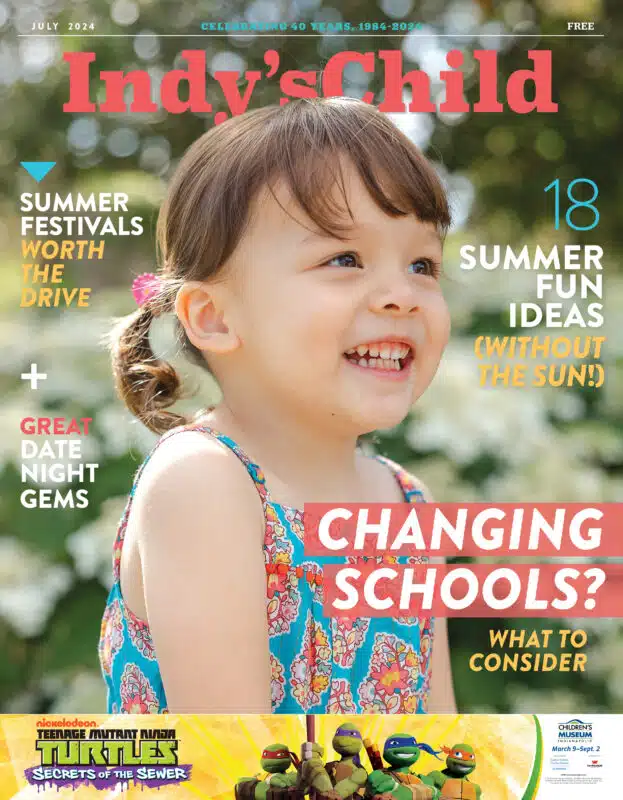Stephanie Becher has the pleasure of listening to her two-year-old daughter sing songs she learned from her preschool enrichment class at The Music Playhouse. Her daughter’s sweet voice carries throughout their home as she dances around the house singing as if she were the teacher.
“In class, she is really shy and likes to observe rather than participate, but I know that she is taking it all in because at home, she becomes the performer!” Becher said. “My daughter sings The Music Playhouse songs everywhere she goes – in her crib and in the car. She even makes up her own words and sings to her dolls!”
Children like Becher’s daughter are never too young for enrichment opportunities such as this. Research has shown that the younger a child is exposed to learning and discovery, the more they’re set up for success in later years. If parents wait until the child goes to kindergarten to immerse them in learning environments, they’ve just lost the most important time to optimize their child’s development.
In fact, this same research has shown that enrichment experiences in the early years not only make a difference, but are actually considered critical because the brain is developing so rapidly, according to Debbie Aikman, director and owner of The Music Playhouse. Enrolling children in preschool programs and enriching extracurricular classes will promote healthy child development through social, physical, emotional and cognitive growth experiences.
Preschool and enrichment classes provide a different environment then what kids see at home. The programs let them become explorers and discoverers of the world. The classes shouldn’t push children but instead provide an environment rich with interaction tools for what comes natural to them, according to Barbara L. Wolf, Ph.D., associate vice president of research and family learning evaluation and technical advisor to The Children’s Museum Preschool.
When choosing an enrichment program for your child, make sure the program is age-appropriate. Solicit program referrals from other parents or child healthcare providers. Visit the programs firsthand and ask lots of questions.
“Choose activities that are developmentally appropriate and interesting to the child,” Erin Mills, director of early childhood education at the JCC, said. “Forced engagement in an activity at too young an age can be stressful for the child. Activities that are stimulating and fun engage children and support natural learning in a positive environment. By engaging children in developmentally appropriate creative exploration, children gain confidence in their own ideas and independent thinking.”
Shannon Cohen, mom to 7-year-old Teagan and 4-year-old Finn, said she chose to send her kids to the JCC because it provided a comprehensive, diverse experience for her children. “I was drawn to the opportunity for ancillary enrichment programs in addition to the daily preschool schedule. I liked that my kids had exposure to music classes and physical education from the age of 1. The ability to send my kids directly to afterschool activities (soccer, karate, and basketball) was also another draw for me,” Cohen said.
Preschool enrichment programs present benefits for the parents, too. Not only do they give adults some time for themselves, but the programs also offer interaction with other parents and the chance to see how other families interrelate with their children – a great way to pick up new parenting techniques.
With enrichment classes, parents can set aside a specific time to be engaged and interactive with their children by either participating in the classroom or simply having a conversation with the children about what they learned. Through this, parents have the opportunity to learn more about their children’s skill levels, needs, successes and developments, according to Mistie Timmons, associate executive director of the Youth Enrichment Center at the YMCA of Greater Indianapolis.
Experts recommend continuing a child’s learning processes at home, too. Learning is a swirl of life around them; it shouldn’t stop when they leave preschool.
Many preschools give individualized handouts to provide a strong home-school connection. These handouts are full of activity ideas to help families reinforce and extend their child’s learning at home, according to Linda Nelson, Senior Curriculum Developer of KinderCare. Families and enrichment teachers are encouraged to maintain an ongoing, open dialog about the children’s experience in the programs.
To ensure that your child is getting the most out of their enrichment programs, try to join them every now and then so that you can learn new ways to interact with your child and know their world.
“At The Music Playhouse, we have seen over and over that if the parent goes to a class with their child and the adult is having an awesome time and fully engaged, the child will be much more likely to have fun and be engaged, and therefore maximize their learning and get the full benefit of the enrichment program,” Aikman said. “Remember, they are watching and modeling you! This particular concept doesn’t happen to change after early childhood either, so, lead by example throughout your child’s life.”
“My husband and I strongly feel that the opportunity to explore different aspects of life, beyond that which can be covered in a traditional classroom, is crucial to forming a well-rounded child,” Cohen said. “While they could have gotten similar classroom experiences at any number of programs, it was the enrichment, starting at a very young age, which made us choose the JCC. We want our kids to have a well-rounded understanding of sports, the arts, and, quite simply ‘how to do things.’ These experiences have given the kids confidence in their daily lives and encourages them to try new things.”






